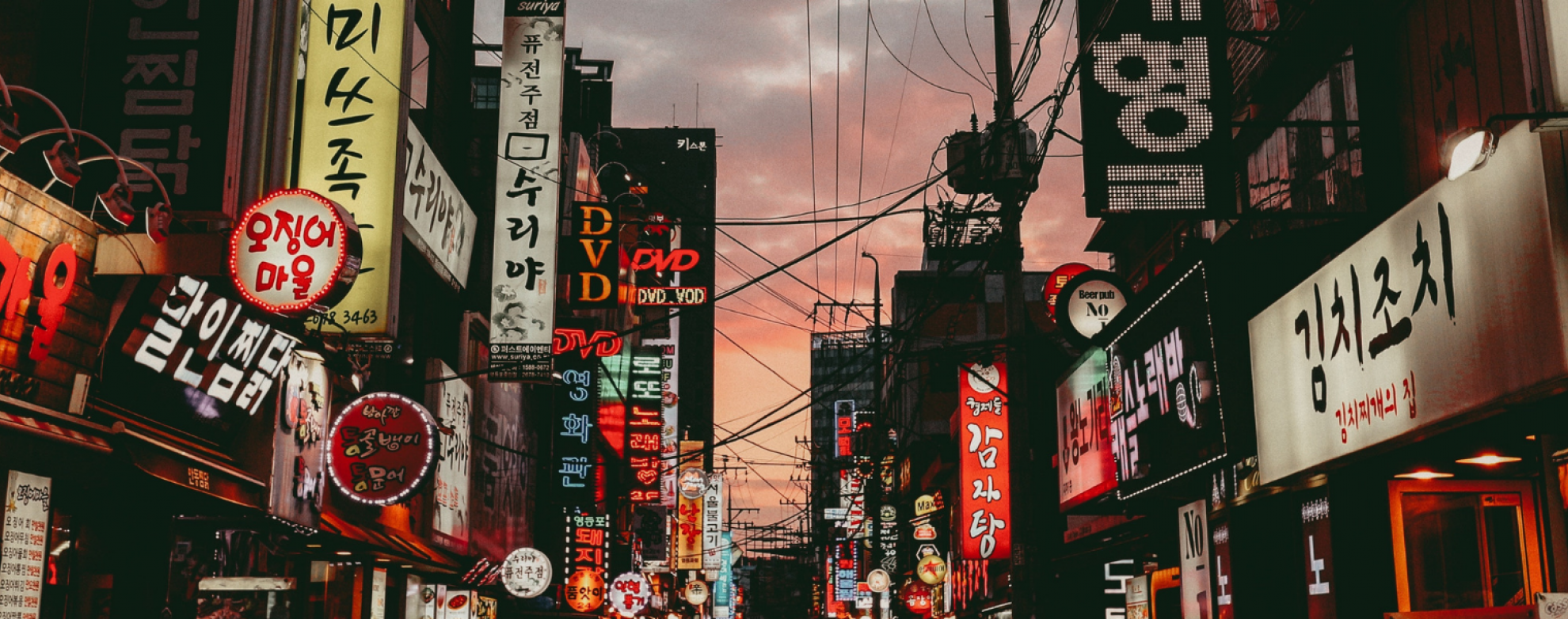The pros and cons of expat life in Seoul

Pro: the beating heart of South Korea
All capital cities are important. But with 22 million people – half the country’s population – living there, Seoul is more than a capital city. It is a driving force and overwhelming presence, and dominates life in South Korea. Expats may venture into the mountains to the North of the city in order to explore the countryside – and breathe some fresh air – but there are few towns or cities outside the capital that offer interest to expats.
Its importance to the country as a whole makes it a fascinating, bustling, noisy and thrilling place to live. Real estate can be expensive, particularly in the glamorous Gangnam district but, for many expats, the experience of life in this colourful part of town is worth it.
Better deals can be found if expats are willing to set up home North of the Han river in Gangbuk – and while this area may lack the profile and nightlife of other more popular sectors, it is the former Royal Capital and is generally seen as more authentic. Also bear in mind that renting a property in Seoul will involve payment of a deposit (known as ‘key money’) as well as rent.
Con: employment prospects for Westerners
Despite the presence of major global corporates like Samsung and Hyundai, Seoul does not have the same foreign talent tradition as more established commercial hubs in the region, like Singapore.
Unless you are seeking work as an English teacher (for which there is an unquenchable demand), this makes job-seeking a challenge for expats. Companies need to prove that they have first made any position available to local candidates before they bring in personnel from overseas. It helps if you can speak Korean, but getting beyond a conversational level is an unlikely goal for most expats.
Nonetheless, the number of monolingual professionals making Seoul their home is on the increase, particularly in fields such as IT, engineering and computer programming.
Pro: holidays and festivals
In South Korea, it can seem that every week contains a holiday of some kind. A myriad of different seasonal festivals punctuate the calendar, with offices closed to observe national days of celebration including Lunar New Year, Independence Day, Buddha’s Birthday, Children’s Day, Memorial Day, Hangul Day, Chuseok (Korean Thanksgiving), and of course Christmas.
There is a downside, however. Company bosses are reluctant to allow any ‘personal time’ to supplement these holidays. Even sick days are closely scrutinized. With so many nationally-sponsored days off, South Korean business clearly has to do everything it can to get productivity back up again.

Con: traffic
Seoul is a busy city that handles large amounts of traffic. In that regard, it is like any other major city in the world. What sets it apart is the apparent disregard amongst motorists for rules, regulations or even red lights.
While some expats like the fact that rules can be bent now and again in a way that would be unthinkable in more highly regulated places such as Germany or Singapore, it does give rise to lots of minor (and sometimes major) accidents – and in South Korea it is often the ‘foreigner’ who is seen to have caused it. Pedestrians should be watchful, and motorists well-insured.
Pro: cheap food
For expats who want to eat as if they are still back home, the dining experience in Seoul will be both frustrating and hugely expensive. However, for those who are ready to dive into the local culture, delicious food is extremely affordable.
Many expats note that it is cheaper to eat out than in – as long as you stick to Korean cuisine of course. And why not? It’s delicious. Cooking at home is of course an option for the more adventurous, but without knowledge of the Korean language or cooking methods, expats may find this a challenge. And of course, in the grocery store too, Western products will be much more expensive than seasonal Korean fare.

Con: political instability
Don’t forget it is a country split in two. The political extremes of North and South Korea have co-existed for over half a century, but the North is an unpredictable neighbour. It swings from apparently progressive talks with the US president to threats to turn Seoul into a “sea of fire”. South Koreans are understandably jumpy and expats are well advised to keep an eye on the political climate – not least because their employers will be watching it too.
Pro: good public services and low crime rate
Seoul is one of the safest big cities in the world. Numbeo.com gives it a ‘safety rating’ of 65.95, making it safer than both the UK and Germany (57.28 and 65.49 respectively). The state education system is also of a high standard, focusing on science and mathematics, as well as English and Korean.
English is hugely important and many schools employ a native speaker. English is also spoken by many healthcare professionals, in a public system that offers excellent medical care.
Con: hierarchical attitudes
In common with many Far Eastern cultures, South Korean society can be described as both hierarchical and collective. That is to say that workers do not like to stand out, especially if that means failing to observe the wishes of a superior. US expat David Carruth, a Korean-to-English translator, notes that workers will wait for a signal from a supervisor before leaving the office, rather than watching the clock. Expats will be expected to follow suit.
Since elders command instinctive respect from junior workers, their attitude can often be blunt. Expats should not see this as rude, but normal.
Summary
South Korea is a fascinating and beautiful country, and its capital is a whirlwind of sights and sounds that will delight you. But it is not for the faint-hearted. Its language is challenging, the traffic is terrifying, and societal attitudes are unusual.
Expats often remark that they are something of a curiosity to locals, who will unashamedly stare at anyone who is not obviously Korean. The best approach is to dive deep into it: appreciate the culture, savour the food, and enjoy the experience.



